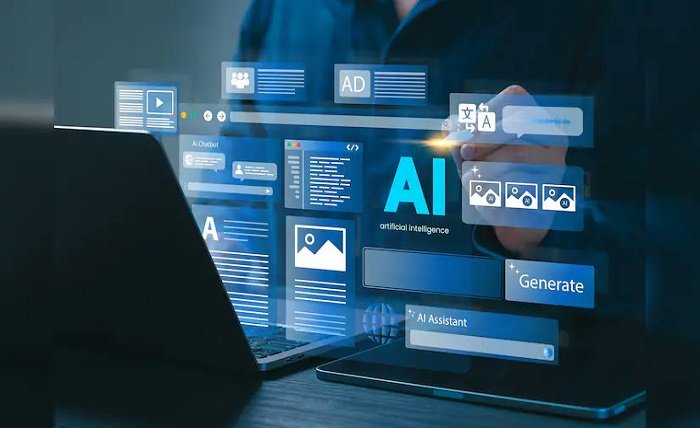
An unfite computer represents a futuristic approach to computing, incorporating innovations that redefine traditional computational methods. While “unfite computer” may not be a widely recognized term yet, it suggests a conceptual evolution in the way computers process data, possibly involving advanced architectures or new computational paradigms. These computers might leverage non-conventional frameworks such as quantum computing, neural networks, or specialized algorithms designed for unique applications. The unfite computer holds promise for solving problems beyond the capabilities of current systems.
How Does an Unfite Computer Differ From Traditional Systems?
The core distinction of an unfite computer lies in its architecture and operational methodology. Unlike conventional systems that rely on binary logic, unfite computers might use advanced multi-state logic or alternative frameworks. This enables them to process complex datasets faster and more efficiently. For instance, an unfite computer could employ adaptive algorithms, allowing it to self-optimize for specific tasks. These differences make it suitable for tasks such as artificial intelligence, big data analysis, and scientific research, where conventional systems face limitations.
The Potential Applications of Unfite Computers
The versatility of an unfite computer makes it ideal for a range of industries. In healthcare, it could revolutionize diagnostics by processing complex genetic data. In finance, an unfite computer might analyze massive datasets to predict market trends with unparalleled accuracy. The gaming industry could benefit from its enhanced processing power, enabling realistic simulations. Additionally, industries like robotics, space exploration, and climate science could also leverage the capabilities of an unfite computer to achieve breakthroughs.
The Role of AI in Unfite Computer Technology
Artificial intelligence (AI) is at the heart of many discussions about the unfite computer. These systems are expected to incorporate AI algorithms as a core component, enhancing their ability to learn and adapt. For instance, an unfite computer could integrate machine learning models to predict outcomes, recognize patterns, and improve its functionality over time. This synergy between AI and unfite computer systems represents a transformative shift in computational capabilities, potentially setting a new standard for intelligent systems.
How Unfite Computers Transform Big Data Analysis
Big data is a field that demands immense computational power, making it a natural fit for an unfite computer. These systems can analyze large, unstructured datasets faster and with greater precision than traditional computers. By optimizing data processing workflows, an unfite computer could uncover hidden patterns in datasets, enabling breakthroughs in areas like customer behavior analysis, fraud detection, and predictive analytics. The ability of unfite computers to handle big data efficiently could revolutionize industries reliant on data-driven decisions.
Challenges in Developing Unfite Computer Systems
Despite their potential, building an unfite computer comes with challenges. Designing such advanced systems requires overcoming significant hurdles in hardware innovation, software compatibility, and cost. Additionally, ensuring that these systems are energy-efficient and scalable presents another layer of complexity. As researchers work to refine the unfite computer, addressing these obstacles will be crucial to making the technology accessible and practical for widespread use.
The Impact of Unfite Computers on Cybersecurity
Cybersecurity is a critical area where an unfite computer could make a significant impact. With its advanced computational power, it could detect and respond to threats in real-time, safeguarding sensitive information more effectively. However, the unfite computer could also pose risks by enabling new forms of cyberattacks. Ensuring robust security measures and ethical usage will be essential as these systems become more prevalent in the cybersecurity landscape.
Unfite Computers in Scientific Research
The field of scientific research stands to gain immensely from the capabilities of an unfite computer. By processing complex simulations, modeling phenomena, and analyzing massive datasets, these systems could accelerate discoveries in fields like physics, biology, and chemistry. For example, an unfite computer could help researchers model climate change scenarios or simulate the behavior of subatomic particles, paving the way for groundbreaking advancements.
The Future of Unfite Computer Technology
The future of the unfite computer looks promising as researchers and engineers continue to push the boundaries of computational technology. Innovations in quantum computing, AI integration, and advanced algorithms are expected to drive the development of unfite computers. As these systems become more sophisticated, they could redefine the capabilities of computing and lead to advancements that were previously unimaginable.
Conclusion
The unfite computer represents a new frontier in computational technology, offering transformative potential across industries. From big data analysis to AI, scientific research, and cybersecurity, its applications are vast and impactful. While challenges remain in its development, the promise of an unfite computer to solve complex problems and enhance efficiency makes it a technology worth investing in and exploring. As the world embraces this innovation, the unfite computer could shape the future of computing and redefine human capabilities.
FAQs:
1. What is an unfite computer?
An unfite computer refers to an advanced computational system with innovative architecture, offering enhanced capabilities over traditional systems.
2. How does an unfite computer differ from regular computers?
An unfite computer may use alternative frameworks like multi-state logic or AI-driven algorithms, enabling superior processing power.
3. What industries could benefit from unfite computers?
Industries like healthcare, finance, gaming, robotics, and scientific research can leverage the transformative capabilities of unfite computers.
4. What are the challenges in developing unfite computers?
Challenges include high development costs, hardware innovation requirements, and ensuring energy efficiency and scalability.
5. How will unfite computers impact cybersecurity?
Unfite computers could enhance threat detection and response in cybersecurity, though they might also introduce new risks if misused.




